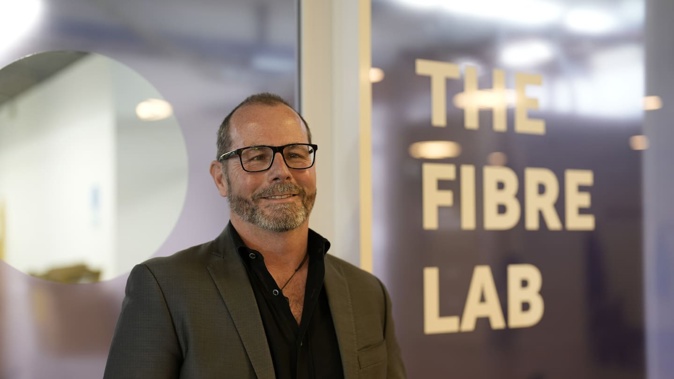
Chorus says the soft economy saw customers drawn to cheaper plans and a drop-off in new property development that hit its new-install revenue.
The UFB network operator swung to a first-half net loss of $5 million from a $5m profit for H124 on flat Ebitda ($346m v H124′s $347m).
It warned full-year operating earnings were “tracking to the lower half” of its $700-720m range.
But Chorus also confirmed its full-year dividend guidance of an unimputed 57.5 cents per share (against 2024′s 35cps) with a 23cps payout for the first half. Dividends would “remain unimputed in the medium term”.
“New property development revenues were about $2m lower due to the slowed economy, while there was strong growth in the lower-revenue 50Mbps broadband plan, largely reflecting cost of living pressures,” the firm said in an NZX filing.
The 50-megabits-per-second Home Fibre Starter plan grew from 21,000 wholesale connections to 68,000 in the first half. Chorus recently said it would double the speed of its Starter plan to 100Mpbs from June – will provide a usability boost for low-income households – and boost its competitive appeal against the fixed-wireless broadband offered by Spark and other retailers.
Chorus, whose UFB fibre revenue is tightly regulated, has recently proposed various possible new lines of business, including an expansion of the (now completed) urban Ultrafast Broadband (UFB) fibre rollout areas in a new public-private initiative.
 Chorus is allowed one price rise per year, tied to the CPI, to the wholesale prices it chargers retailers like Spark, One NZ and 2degrees. Table / Chorus NZX filing
Chorus is allowed one price rise per year, tied to the CPI, to the wholesale prices it chargers retailers like Spark, One NZ and 2degrees. Table / Chorus NZX filing
Communications Minister Paul Goldsmith has said he would consider the proposal, but noted fiscal constraints. Chorus has also put forward a memorandum of understanding with DataGrid, signed in December, for a feasibility study on a new trans Tasman cable (DataGrid, founded by Hawaiki Cable alumni Remi Galasso and rich-lister Malcolm Dick, is now owned by Singapore’s H2 Cable.)
Today, Chorus also floated another potential project: “Work with retail service providers [like Spark, One NZ and 2degrees] on a proof-of-concept that aims to bring an equitable fibre product to 1500 low-income and digitally excluded households.”
“Recent statistics show nearly 400,000 households in New Zealand are unable to afford meaningful digital access. In the case of digital exclusion, we recognise the potential role we can play in driving positive social outcomes, both through and beyond connectivity,” Chorus chief executive Mark Aue said.
How costs would be shared and other details were not immediately clear.
Chorus said its original full-year Ebitda guidance excluded exploratory opex for the possible subsea cable.
It noted the second half would include fibre price increases that will kick in from January next year.
Gross capital expenditure was $199m, down $33 million from the first half, reflecting cost control and fewer fibre installations, Chorus said.
The firm said the number of fibre connections grew by 14,000 in the first half to 1.09m or 71% of the 1.53m premises within reach of the UFB. It’s gunning for 80% by 2030.
Remaining copper connections fell 22% to 123,000 – with fewer than 28,000 copper lines in Chorus areas. In rural areas, Elon Musk’s Starlink, which now has more than 37,000 customers and more than $73.8m revenue in New Zealand, has emerged as a strong alternative.
Shares closed on Friday at $8.93. The stock was up 12.9% over the past 12 months going into today’s results.
Chris Keall is an Auckland-based member of the Herald’s business team. He joined the Herald in 2018 and is the technology editor and a senior business writer.
Take your Radio, Podcasts and Music with you









